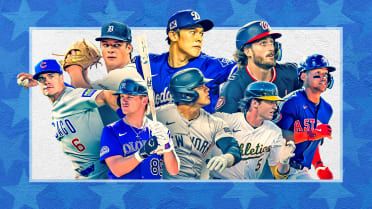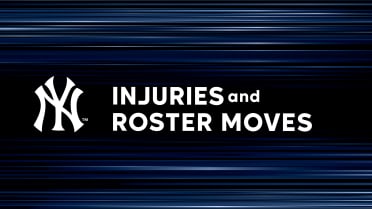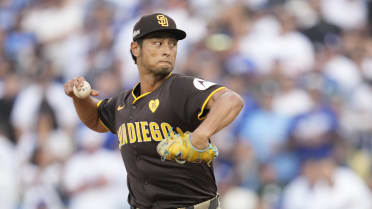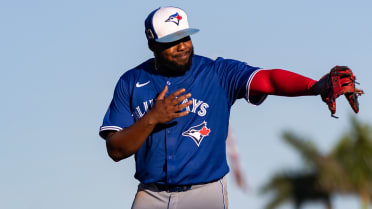SAN DIEGO -- The Dodgers have drawn up more postseason rosters than any club over the past seven years, but they’ve never dealt with a predicament like the one Rich Hill presents.
In his outing on Tuesday night at Petco Park, the starting pitcher grimaced and limped and looked just as injured as he did when he left a start in Baltimore in the first inning 12 days earlier. Only this time, he didn’t leave. He struck out five in two innings, didn’t allow a hit and put the Dodgers on track to a 6-3 win over the Padres on the night the Dodgers clinched home-field advantage through the National League Championship Series.
Max Muncy returned from an injury too, slugging a grand slam after missing the weekend with a tight quad. It was Muncy’s 33rd homer this year and first grand slam. He was lifted early, looking healthy and even surviving an at-bat against Matt Strahm, who broke Muncy’s wrist with a fastball the last time they met.
By contrast, Hill’s body language sent up red flags to his manager from the fourth pitch on. Hill was unable to hide recurring pain in his left knee, the one needed to push off the rubber, an injury he first sustained in Spring Training.
Desperate to convince management he belongs on the postseason roster, Hill showed perseverance and grit, then kept the ball from a final pitch that got him his 1,000th career strikeout.
When decision time comes, officials will weigh the value of Hill’s experience and effectiveness when he’s right against the potential calamities of blowing up a bullpen if he leaves early or the inability to field his position on a bum knee.
For two innings on Tuesday, there was high anxiety in the dugout among staff, trainers and teammates, but Hill kept going, tough as nails, willing to pitch through pain with a knee brace and do just about anything to be on a postseason roster. At age 39, you never know if you’ll get another chance at a World Series.
There was a hero’s welcome waiting for him in the dugout after the second inning, having completed one of the most inspiring and entertaining two-inning starts in recent memory.
“There’s a lot of will, there’s a lot of fight,” manager Dave Roberts said of Hill. “He just continues to will himself to get through that. He’s trying to continue to show that he’s fine. I appreciate the compete. It’s encouraging that the door remains open. The goal is to get him ready for the [NLDS].”
After Hill walked the second and third Padres batters, the phone rang in the bullpen. Hill didn’t need to see what was happening behind him to know what needed to happen in front of him.
“I just said I better start getting guys out,” Hill said.
He was unable to lumber over to first base fast enough to cover for a double play, settling for a forceout, then fanned Hunter Renfroe to end the inning. He came to bat in the top of the second inning with the understanding that he wouldn’t swing so he wouldn’t have to run. Except he changed his mind and doubled, leaving Roberts to smile in resignation.
“He wasn’t supposed to swing the bat,” said Roberts. “Now it’s like, are you going to try to steal third base?”
No, but he did strike out the side in the second. Then he went to the bullpen and threw another inning, as if the knee didn’t hurt.
“I was able to pitch through that, and pitch well,” said Hill. “You’re going to have some tough issues to pitch through, and when you’re faced with them you’re either do it or not do it. In Baltimore, the pain was a lot worse than it was tonight.”
Roberts said they will see how Hill comes out of this game, give him a chance to pitch three more innings in a Sunday start, and then they’ll have to make a difficult call.
Hill can strike out five of six batters. Or he can exit in the first inning and leave a bullpen in tatters. He can double and high-step to second base. But he couldn’t move fast enough to cover first base on what might have been a double play.
“That’s going to be a challenge, for sure,” Roberts conceded when asked about Hill’s defense.
Hill talked spin rate and pitch elevation afterward, lobbying analytically for one more chance, calling velocity a “misnomer.”
“When you see swings and misses and late swings away from their dominant hand, and guys fouling balls off, it’s a good sign,” he said. “I don’t think I was null and void from the bottom half. There’s work to do to find another mile an hour, but everything with the new metrics were very good. If you look at it like a second start of Spring Training, it was good.”
Ken Gurnick covered the Dodgers for MLB.com from 2001-2020.




